

Dental Cleaning
Preventive dental care is essential to maintaining healthy teeth and gums. We see no shortage of tooth decay in our practice; in fact, it is overwhelming at times. We feel it is necessary to see children regularly for preventive care.
If your child is scheduled for a hygiene appointment, one of our hygienists will check for tartar and plaque; then clean and polish your child’s teeth. During this time she will also review age-appropriate brushing and flossing and answer any questions you may have about cavity prevention or dental hygiene. The hygienist may ask to take x-rays of your child’s teeth.
Dr. Fishbaugh, Dr. McCrea, or Dr. Kilgore will perform a thorough exam checking for cavities, evaluating growth and development and any other concerns. Their findings and recommendations will be discussed and they will gladly answer your questions about the recommended treatment or dental health in general.
Fluoride
Fluoride helps to strengthen teeth and prevent tooth decay. It is naturally found in water in small amounts, as well as in some foods such as meat, eggs, tea and fish. In our office, fluoride is applied after the teeth are cleaned.
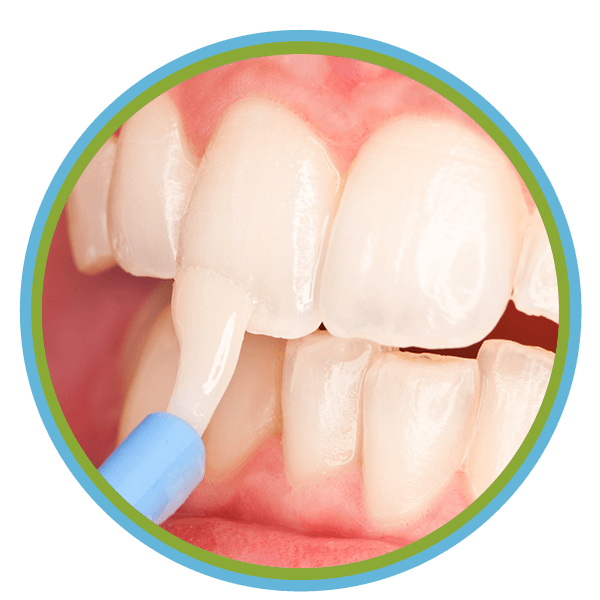
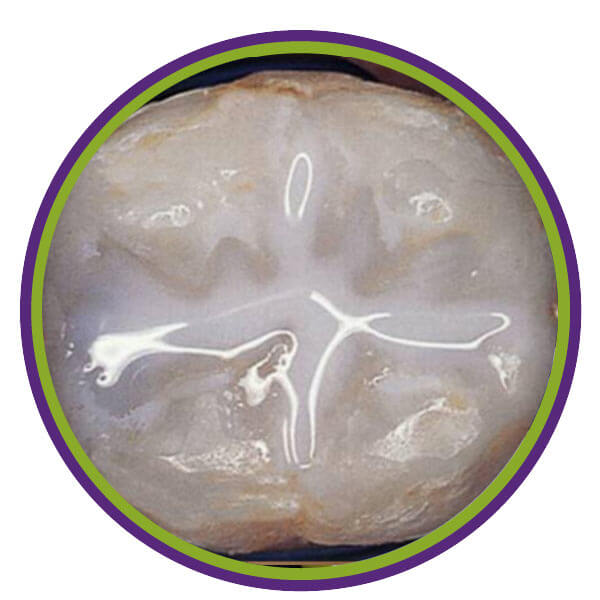
Dental Sealants
Dental Sealants are mainly used to protect the chewing surfaces of the permanent back teeth (molars).
Digital X-Rays
Dental x-rays, (radiographs) provide us with information we cannot visibly see. Primarily they help diagnose dental decay but also reveal dental problems or anomalies like cysts, bone loss or other dental abnormalities.

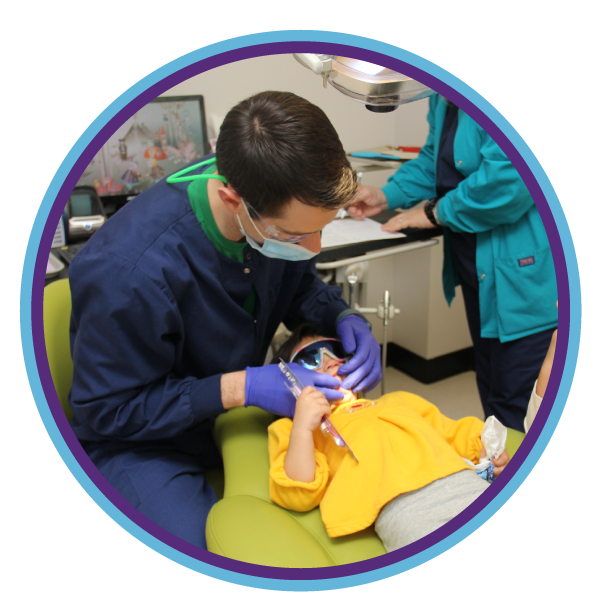
White Fillings
White fillings, unlike silver fillings, are bonded (glued) onto your teeth.
Crowns
When cavities are very large, they cannot always support a filling. In these cases, we cover the tooth with a stainless steel or white crown.
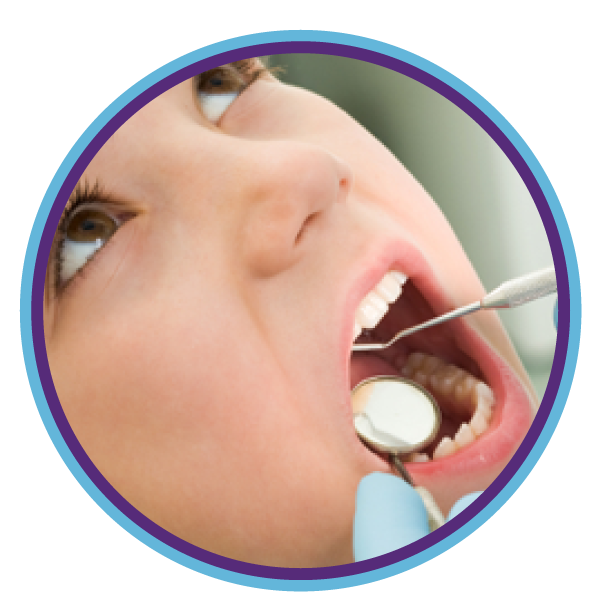
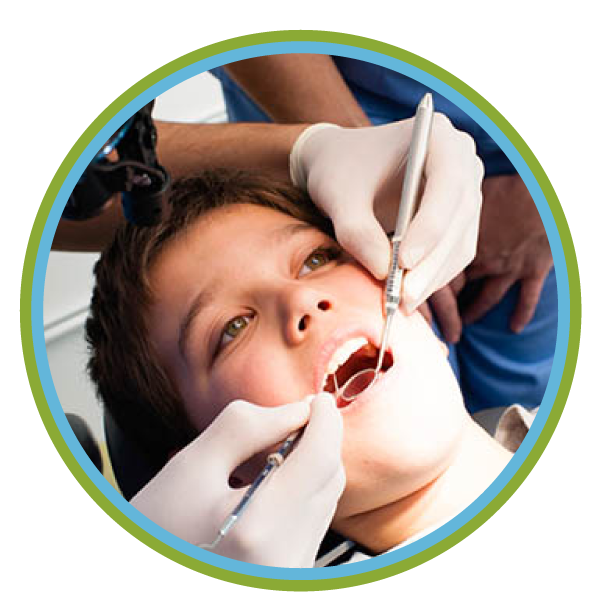
Tooth Extractions
We routinely extract primary teeth in our office. Extractions are usually needed for infected/abscessed teeth, over-retained baby teeth and for orthodontics.
SPACE MAINTAINERS
Space maintainers are custom-made, metal appliances cemented (glued) to the teeth. Properly used space maintainers will keep teeth from “shifting” and can help reduce the risk for orthodontic correction later.
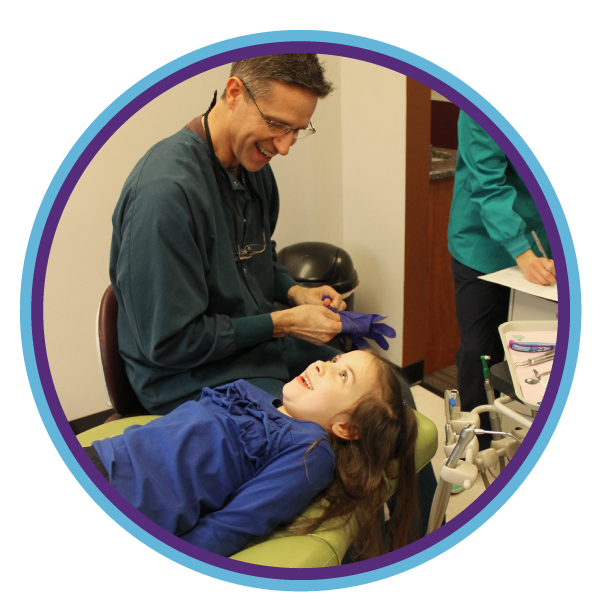
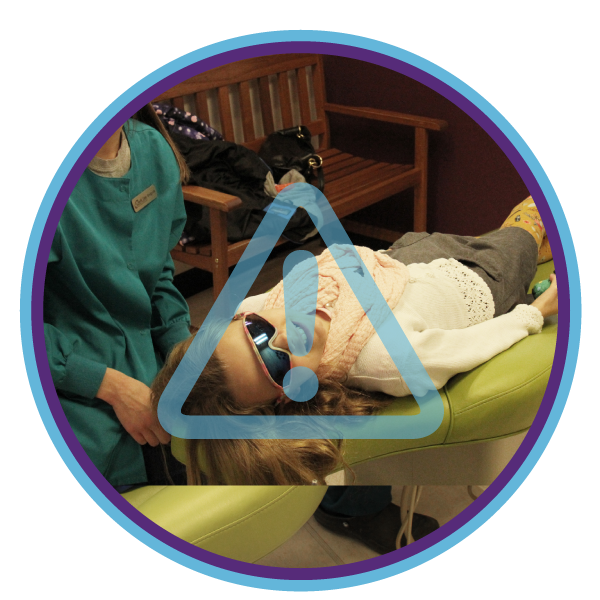
Dental Emergencies
If your child has a dental emergency during our office hours please call and we will see your child promptly. Our office also provides emergency coverage after hours and over the weekend.
Nitrous Oxide Sedation
Nitrous Oxide, commonly referred to as laughing gas, is a mild form of sedation we use quite frequently for children who visit our office. Nitrous Oxide is used to help our patients relax during their visit, and to receive dental treatment in a comfortable and safe manner.
Nitrous oxide is mixed directly with oxygen and breathed in through the nose and as the gas begins to take effect, we use colorful adjectives to describe the relaxed feeling, like “Floating in the chair,” or “Felling squishy like a marshmallow.” Children sometimes state their arms and legs may feel “tingly” as well. The gas has a sweet smell and we often offer a variety of “flavors” (like root beer and watermelon) that help make for a very pleasant experience.
The effects of nitrous oxide are very good and well-received by our patients. It raises the pain threshold and may even make the time appear to pass more quickly. If your child is worried about having dental treatment, most always he or she may respond more positively with the use of nitrous oxide. In addition, it reduces the gag reflex which can interfere with effective dental treatment.
When used at appropriate dosages nitrous oxide is very safe to use during treatment and has no lingering side effects. It is eliminated from the body quickly after the gas is turned off. It will not put your child to sleep—he/she will remain awake during the entire procedure. When we are finished, the nitrous oxide gas will be turned off and typically let the patient breath oxygen for a few minutes.
It is important to note that nitrous oxide is not a replacement for local anesthesia (“novocaine”). It does, however, significantly minimize anything that a child would perceive as noxious or uncomfortable. With nitrous oxide, most children don’t even realize that we “numbed their tooth.”
In a very small percentage of children Nitrous oxide may not be effective, especially those children who have severe anxiety, nasal congestion or discomfort wearing a nasal mask. We will review your child’s medical history, level of anxiety, and treatment needs and inform you if nitrous oxide is recommended for your child.
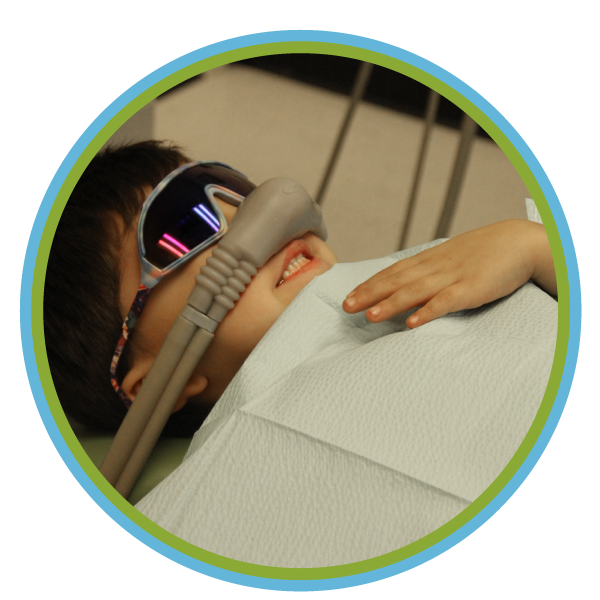
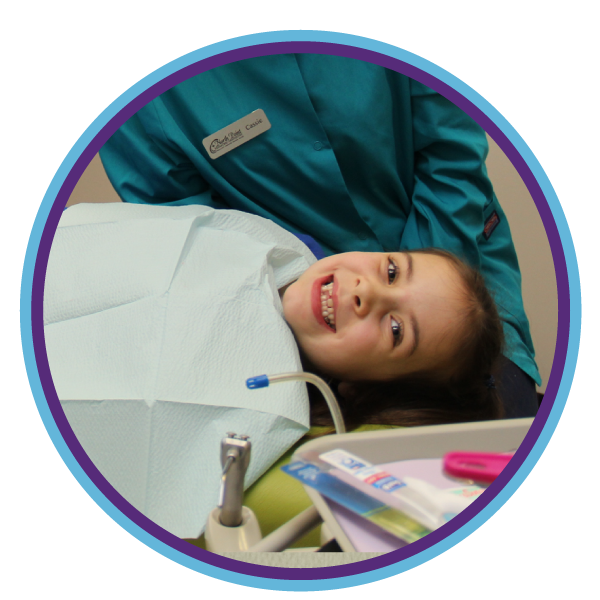
General Anesthesia
The vast majority of children in our practice can be managed very well by Dr. Fishbaugh, Dr. McCrea, and Dr. Kilgore. They are all very experienced in managing children’s behavior. However, some children present unique treatment challenges that required a different approach. Children with acute anxiety, extensive treatment needs, pre-cooperative behavior, or special health care needs are often candidates for treatment under general anesthesia.
Frenectomy
If it is determined a frenectomy is beneficial, the procedure is done using a soft-tissue laser. By using the soft-tissue laser, discomfort is minimized and healing is much faster when compared to using a traditional scalpel or scissor. Simple stretching exercises are required to minimize scar tissue and ensure the best healing possible. We encourage parents and caregivers to consult with us if they have any questions regarding this procedure.
Have Questions?
If you have specific questions regarding any treatments, products, or services provided and would like additional information, please fill out the form below and we will respond within two business days.


